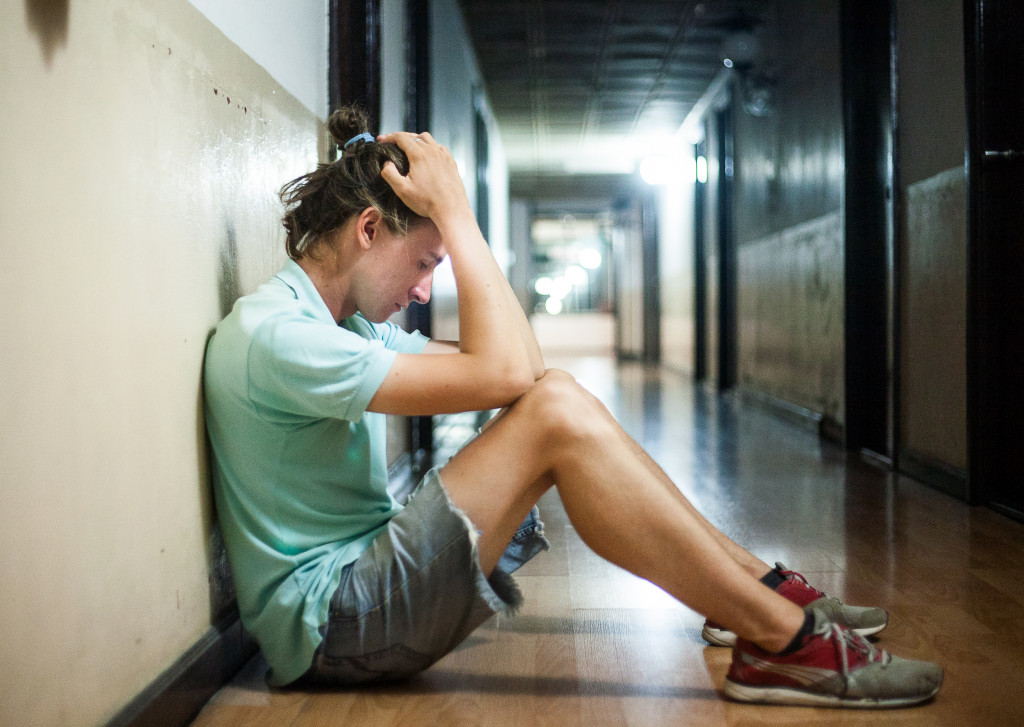• Psychological trauma is a form of psychological injury caused by physical, emotional, and/or psychological harm.
• Common causes of trauma include natural disasters, man-made disasters, medical procedures, and everyday triggers.
• Signs and symptoms may include difficulty sleeping, flashbacks/intrusive thoughts, fear/anxiety, and guilt/helplessness.
• Treatment for trauma may involve intensive outpatient therapy, cognitive behavioral therapy, relaxation techniques, and medications.
• Anyone who has experienced or witnessed a traumatic event should seek professional help if they are feeling overwhelmed.
Psychological trauma is a form of psychological injury that can occur when an individual experiences or witnesses an event that causes physical, emotional, and/or psychological harm. Trauma can have long-term and short-term effects on a person’s mental and physical health, so it is essential to understand the basics of what trauma is and how it affects individuals. Here are a few essential things you need to know about psychological trauma.
What Are the Common Causes of Trauma?
Traumatic events can range from natural disasters, such as floods and earthquakes, to man-made disasters, such as war, abuse, and neglect. Additionally, some people experience trauma due to medical procedures or accidents that result in pain or disability. In some cases, even everyday circumstances may cause psychological distress if they trigger intense feelings of fear or helplessness.
What Are the Signs and Symptoms of Trauma?
The signs and symptoms of psychological trauma can vary significantly depending on the individual’s experience with the traumatic event. Some common symptoms include the following:
Difficulty sleeping

People with trauma may have difficulty relaxing, falling asleep, or staying asleep. This can lead to fatigue and exhaustion during the day.
Flashbacks and intrusive thoughts
Many people with trauma experience intrusive memories of their traumatic event at various times. Flashbacks are vivid recollections of the event that feel like they are occurring in real-time. In some cases, intrusive memories may also include memories of past traumatic events.
Feelings of fear and anxiety
Fear, anxiety, and panic can be common reactions to traumatic events. People with trauma may feel on edge or overly alert and may have difficulty controlling their emotions. They may also find it difficult to trust others or feel safe.
A sense of severe guilt or helplessness
People with trauma may feel incredibly guilty for not being able to prevent the traumatic event. They may also experience feelings of helplessness, which can lead to a loss of control and an inability to move forward.
How Can Trauma Be Treated?
Undergoing intensive outpatient trauma therapy is one of the most effective ways of treating psychological trauma. Therapists use evidence-based treatments such as cognitive behavioral therapy (CBT) to help individuals understand and process their traumatic experiences in a safe, non-judgmental environment.
Treatment can also involve mindfulness and relaxation techniques to help people manage their emotions and reduce stress. In some cases, medications such as antidepressants and anti-anxiety drugs may be prescribed to help manage the symptoms of psychological trauma.
Who Should Seek Treatment for Psychological Trauma?
Anyone who has experienced or witnessed a traumatic event should seek professional help. It is important to remember that trauma affects people differently—even if two individuals experience the same event, their reactions could be vastly different.
If a person is feeling overwhelmed by their emotional and psychological responses to the event, they may benefit from talking to a mental health professional who can provide support and guidance. Additionally, individuals should not be afraid to ask for help if they feel overwhelmed by their emotions or struggle to cope with a traumatic event’s aftermath.
How Can People Recover From Psychological Trauma?

The most important thing to remember is that recovery from trauma is possible. Although it can be challenging, many resources are available to those needing support, including professional help and support groups.
Additionally, finding healthy ways to cope with the stress associated with trauma—such as exercising regularly, eating well, and engaging in activities that bring joy—can help individuals move forward. Finally, it is important to remember that everyone’s recovery process is different and that it is important to be patient with yourself as you work through the difficult emotions associated with trauma.
Once again, trauma can negatively affect a person’s mental and physical health. It is essential to understand the basics of trauma, its common causes, signs, symptoms, and how it can be treated. Although recovery from psychological trauma may be challenging for some individuals, there are many resources available that provide support during this difficult journey.
With patience and dedication to finding healthy ways to cope with the stress associated with traumatic events, it is possible to move forward in life while managing any lingering emotional responses or triggers related to past traumas.






